‘Extremist influencers’: Australia throws $3.5 million at Tate problem
Experts in adolescent development have spoken out about a little-known $3.5m Australian government plan to stop an emerging generation of toxic males.
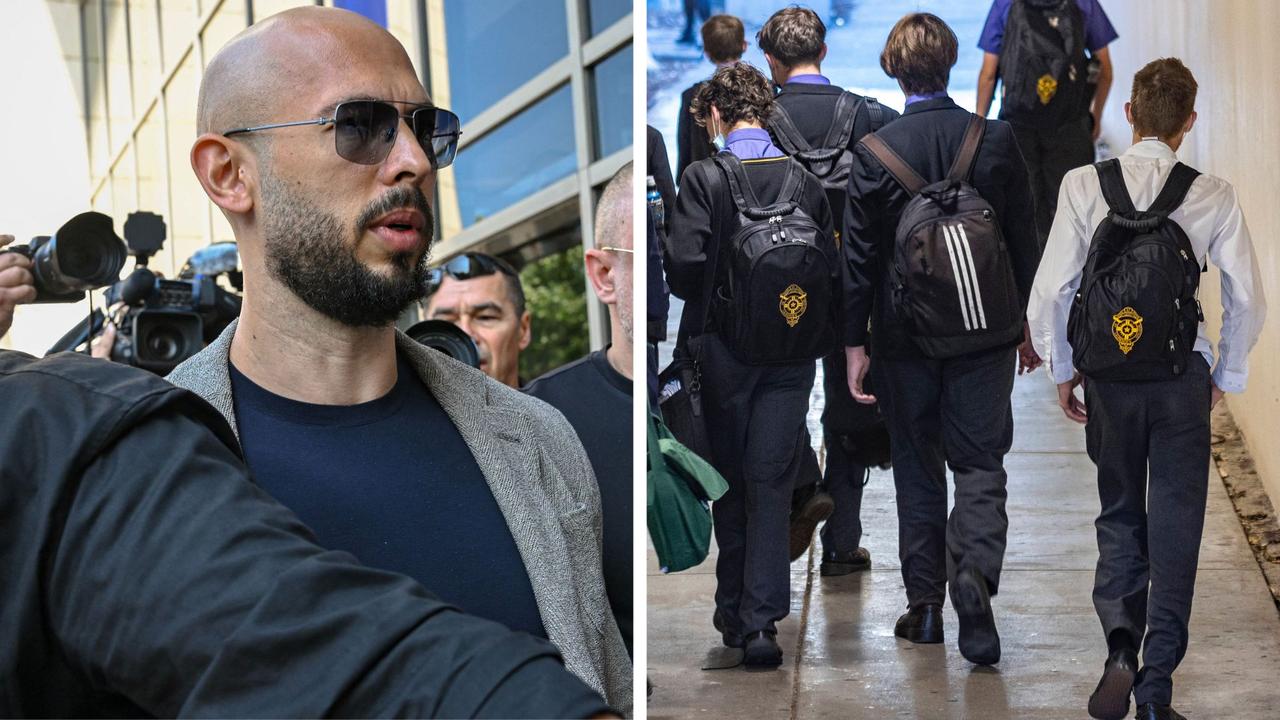
Experts in adolescent development are cautiously welcoming a little-known, multimillion-dollar Australian government effort to nip toxic masculinity in the bud.
To end violence against women and children, the federal government aims to reshape young male attitudes toward healthy, respectful relationships as “extremist influencers” like Andrew Tate influence minds.
The initiative, known as the “Healthy Masculinities Project,” is poised to launch next year as a three-year trial, supported by $3.5 million in funding.
This innovative project will tackle the insidious impact of social media messaging targeting young men and boys, with the primary aim of eradicating gender stereotypes perpetuated online and promoting a culture of respect and supportive relationships among peers.
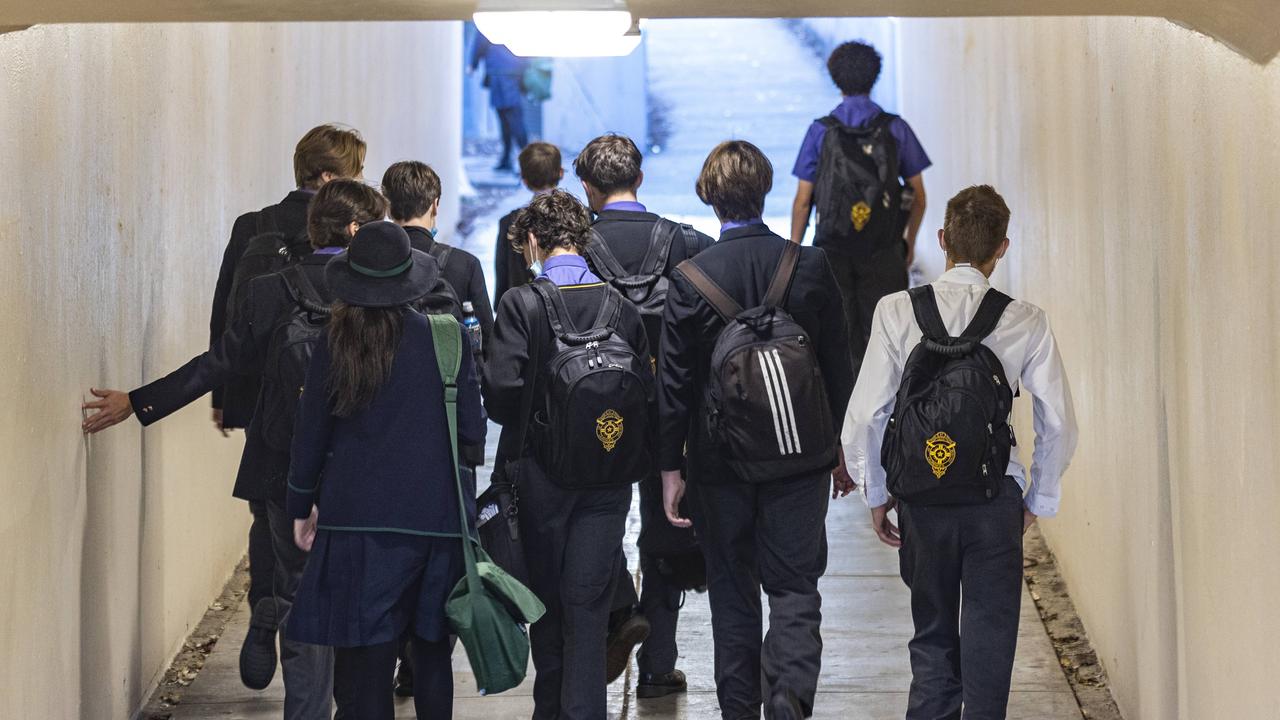
The project will engage the target school-age male audience through face-to-face interactions at sporting clubs, community organisations, and on social media.
Recent research has revealed 25 per cent of teenage boys in Australia look up to social media personalities who propagate harmful gender stereotypes and endorse violence against women.
The government has channelled funding through the First Action Plan Priorities Fund, an $11.9 million fund which is part of the National Plan to End Violence Against Women and Children 2022-32.
Minister for Social Services Amanda Rishworth said there is a need for young men to develop supportive relationships with their male peers and marked the project as a critical first step towards fostering healthy male attitudes.
Ms Rishworth cited the links between harmful forms of masculinity and the perpetration of violence against women.
“Research shows there are strong links between harmful forms of masculinity and the perpetration of violence against women,” she said.
“Educating boys about healthy masculinity and providing them with positive role models are important steps to ending cycles of violence.”
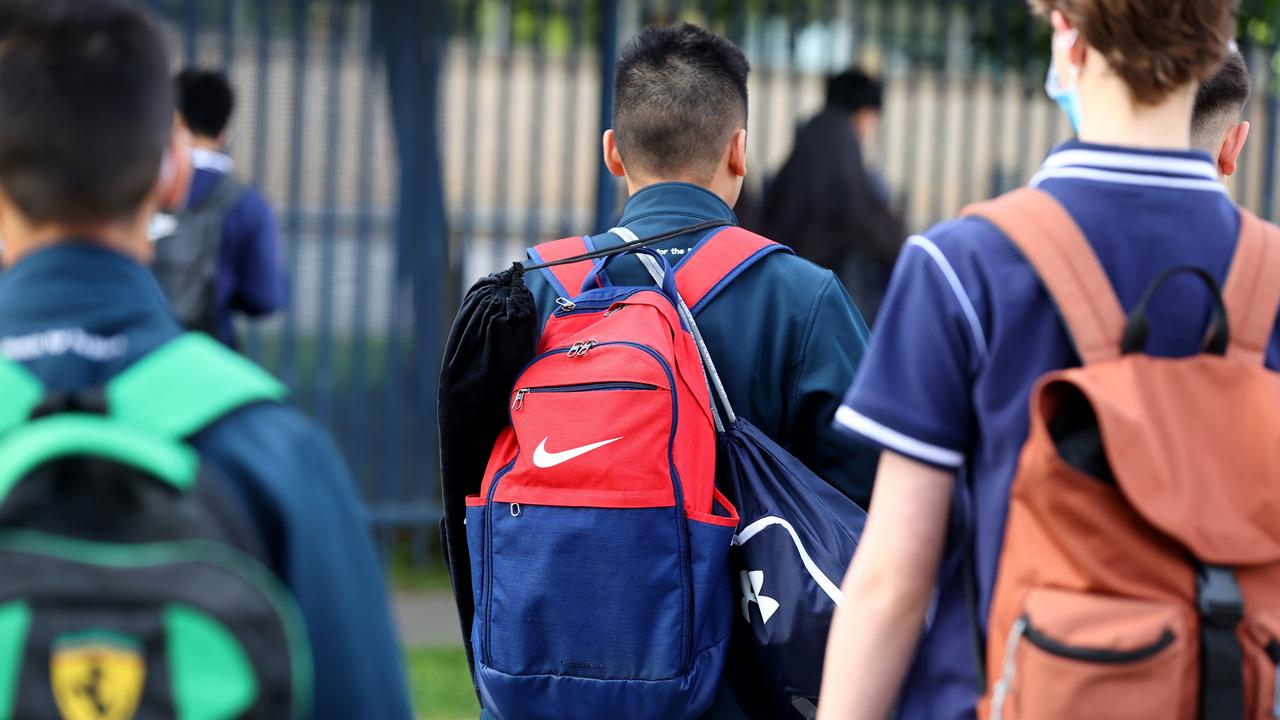
The grant round for this trial will open its doors in early 2024 and will offer an opportunity for organisations equipped with specialist expertise to sign on.
Ms Rishworth emphasised the necessity of addressing violent behaviour at its roots.
Andrew Tate is a controversial kickboxer and reality TV star turned content creator who has amassed billions of views among tens of millions of followers despite being de-platformed by most social media platforms.
He has been known to preach troubling views regarding women, including that rape victims “must bear some responsibility” for their attacks; or that women should be choked by their male partners and stopped from going out.
But Mr Tate, who often flaunts his lavish life, is seen by many young men as an authority on what it is to be successful.
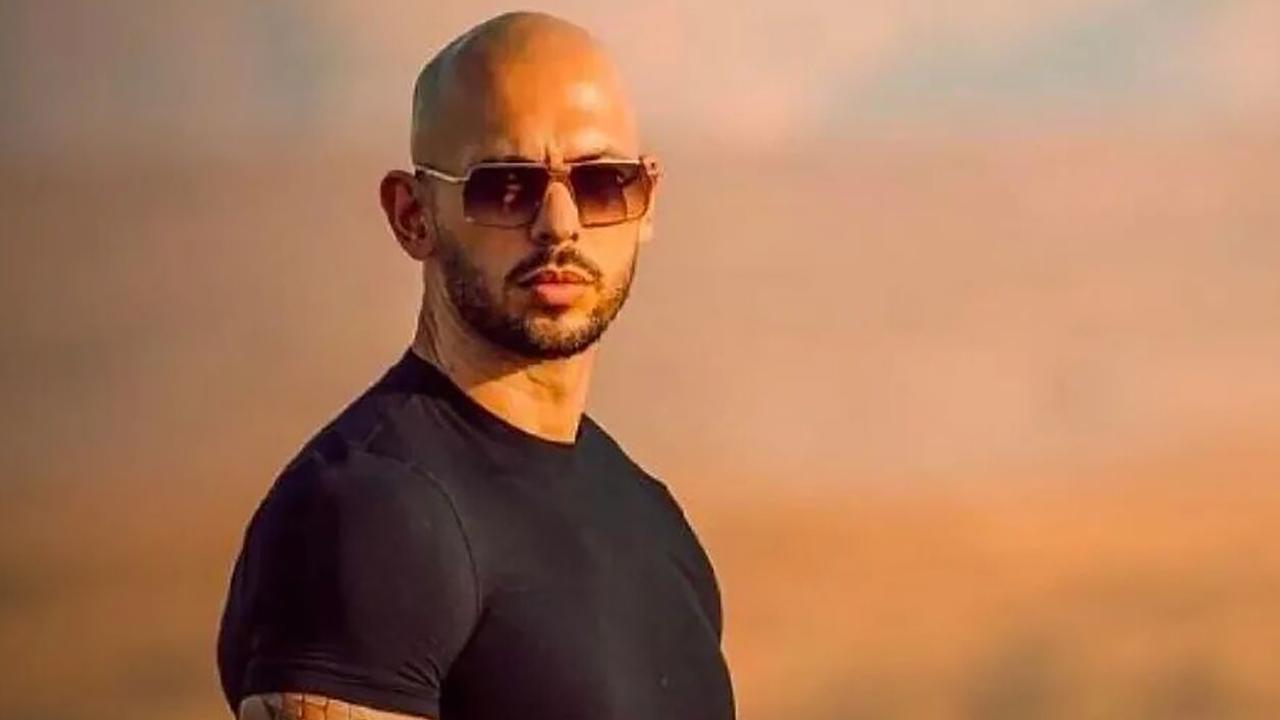
In August, he was released from house arrest in Romania and placed under judicial control, a lighter restrictive measure, while he awaits trial on charges of human trafficking.
As National Director of White Ribbon Australia, Allan Ball, previously explained to news.com.au, “the use of gaming, extreme bravado and music [in the videos of Tate] overlays his deplorable actions with a filter of normalcy”.
“Impressionable young minds are drawn in by money, power and unwavering confidence to become part of a tribe,” he said.
Mr Tate created the Real World Portal in recent months, after closing his subscription-based “Hustler’s University”, an online academy for his fans, promising to assist them in making big money while helping his videos on social media go viral.
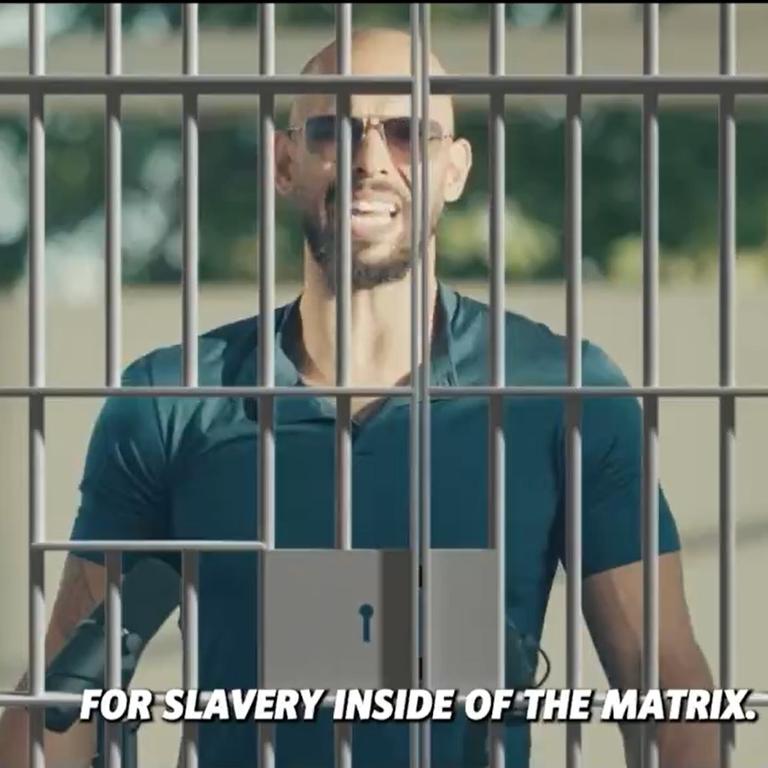
Real World, which bills itself as an anti-university, promises members will make over $10k a month online.
A joint statement from Dr Stephanie Wescott and Professor Steven Roberts, two leading experts in the education field from Monash University, broadly welcomed the government’s initiative while highlighting the hazardous influence of misogynistic influencers like Mr Tate on impressionable boys and young men.
The pair are currently conducting research on the impact of Mr Tate’s content on boys in Australian schools, and have already revealed its far-reaching consequences on girls and women in classrooms across the country.
The research further highlighted that boys consuming Mr Tate’s content were more likely to harbour unhealthy views on relationships — an alarming finding given the high rates of family violence in Australia.
Dr Wescott and Prof Roberts raised a critical concern about the potential pitfalls of implementing short-term, “quick-fix” programs and interventions that might lack the capacity for sustained engagement with young men.
They cited mixed evidence regarding the effectiveness of such approaches and emphasised the absence of a uniform strategy for evaluating their impact.
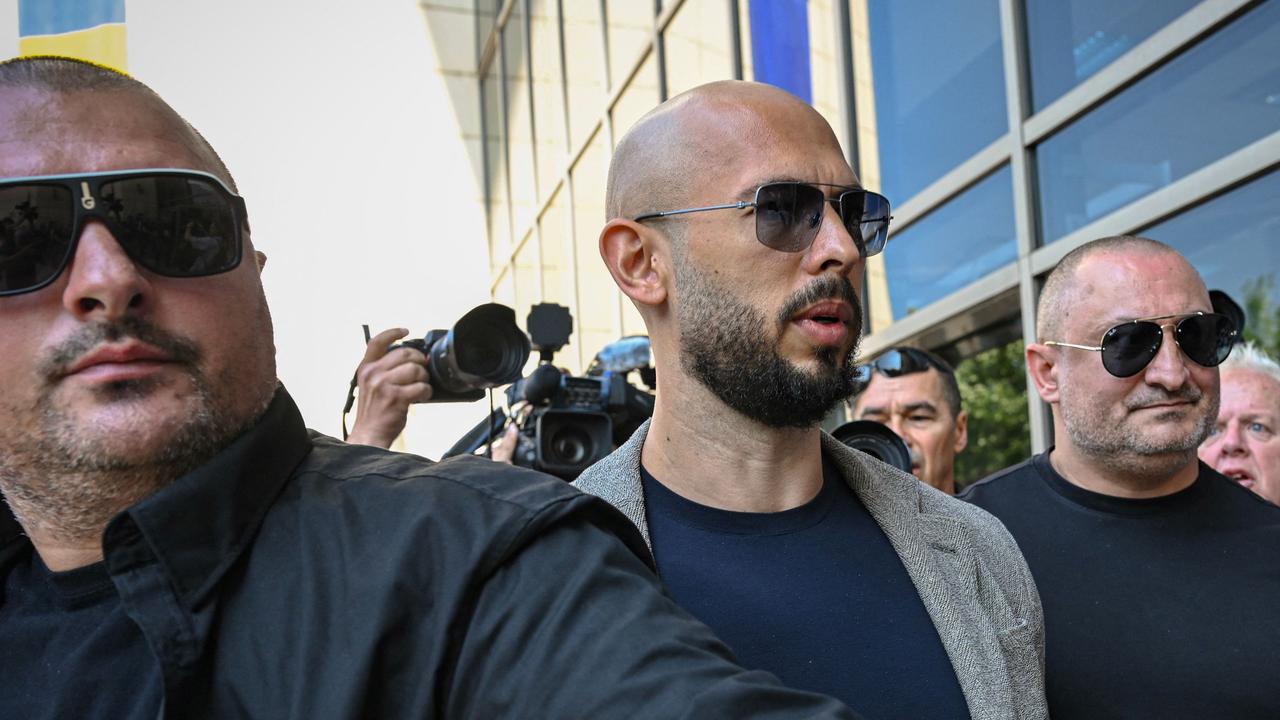
The experts recommended long-term, direct, and targeted initiatives that challenge detrimental social norms affecting boys’ mental health and emotions while adopting a “gender-transformative” approach based on best practices.
“We also challenge the assumption that boys need only to hear from other men about how to develop positive masculinity, and note that the inclusion of only male role models in healthy masculinity programs are not backed by robust evidence,” they wrote.
They argued boys benefit from interacting with individuals of diverse gender identities at all life stages.
The experts warned that featuring only male role models may reinforce negative aspects of healthy masculinity programs.
“The reasons boys and young men find extremist influencers like Andrew Tate appealing are complex and multifaceted, and so must be the approaches we use to address them,” they said.
The pair urged the federal government and the Minister for Social Services to consult widely with experts in the field and lean on established research.






